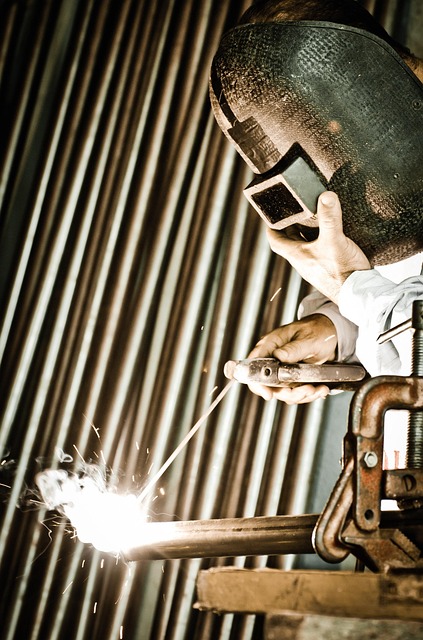Beginner Welding Training Programs Available in the Netherlands
Individuals residing in the Netherlands and fluent in English may consider initiating their journey in welding through various beginner training programs. These programs are designed to introduce foundational welding techniques and safety practices essential for aspiring welders. A range of options exists for those interested in acquiring skills in this trade.

Welding education in the Netherlands follows structured approaches designed to build foundational skills in metal joining techniques. The country’s technical education system includes welding instruction as part of broader manufacturing and construction curricula.
Understanding the Basics of Welding for Beginners in the Netherlands
Welding fundamentals typically covered in Dutch training programs include metal properties, joint design, and safety protocols. Students generally learn about different welding processes such as Gas Metal Arc Welding (GMAW/MIG), Gas Tungsten Arc Welding (GTAW/TIG), and Shielded Metal Arc Welding (SMAW/Stick). Training methodology usually emphasizes proper technique development through supervised practice with various materials including steel, aluminum, and stainless steel. Safety instruction covers protective equipment usage, ventilation requirements, and hazard recognition protocols that align with Dutch workplace safety standards.
Language Requirements for Welding Training Programs in English
Some Dutch educational institutions may offer welding instruction in English, particularly those serving international student populations. Language availability varies significantly between institutions and specific programs. Course materials and safety documentation might be available in multiple languages depending on the training provider’s policies. Students interested in English-language instruction should contact institutions directly to verify current language options, as availability can change based on enrollment demand and instructor availability.
Overview of Welding Training Programs in the Netherlands
Welding training in the Netherlands typically occurs through technical colleges (ROCs), private training centers, and specialized institutes. Program structures generally range from short introductory courses to comprehensive certification tracks. Training usually combines classroom instruction covering welding theory, metallurgy, and blueprint interpretation with hands-on workshop practice. Students typically work with standard welding equipment and practice various welding positions including flat, horizontal, vertical, and overhead configurations.
| Training Type | Typical Duration | General Cost Range | Common Features |
|---|---|---|---|
| Basic Welding Introduction | 4-8 weeks | €1,000-€3,000 | Fundamental techniques, safety |
| Professional Certification | 12-20 weeks | €3,000-€6,000 | Multiple processes, testing |
| Intensive Programs | 6-12 weeks | €2,500-€5,000 | Accelerated learning, practice |
| Part-time Courses | 3-6 months | €1,500-€4,000 | Evening/weekend options |
| Advanced Specialization | 8-16 weeks | €3,500-€7,500 | Specialized techniques |
Prices, rates, or cost estimates mentioned in this article are based on the latest available information but may change over time. Independent research is advised before making financial decisions.
Training facilities in the Netherlands typically maintain welding laboratories with various equipment types and configurations. Students generally gain experience with different joint types and welding positions commonly used in industrial applications. Many programs include instruction on welding inspection principles, quality control concepts, and basic fabrication techniques. Completion typically results in certificates or credentials, though recognition and acceptance vary by employer and industry sector.
The Dutch welding sector encompasses maritime industries, construction, manufacturing, and maintenance operations. Employment opportunities exist across various company sizes and specializations, from large shipbuilding operations to smaller fabrication shops. Career progression often depends on additional certifications, specialized training, and accumulated experience in specific welding applications or industry sectors.
Individuals considering welding training should research available options thoroughly, including program accreditation, facility capabilities, and instructor qualifications. Many institutions offer information sessions or facility tours to help prospective students evaluate training options. Financial assistance programs may exist through various Dutch education funding mechanisms, though eligibility requirements and availability should be verified with relevant authorities.




